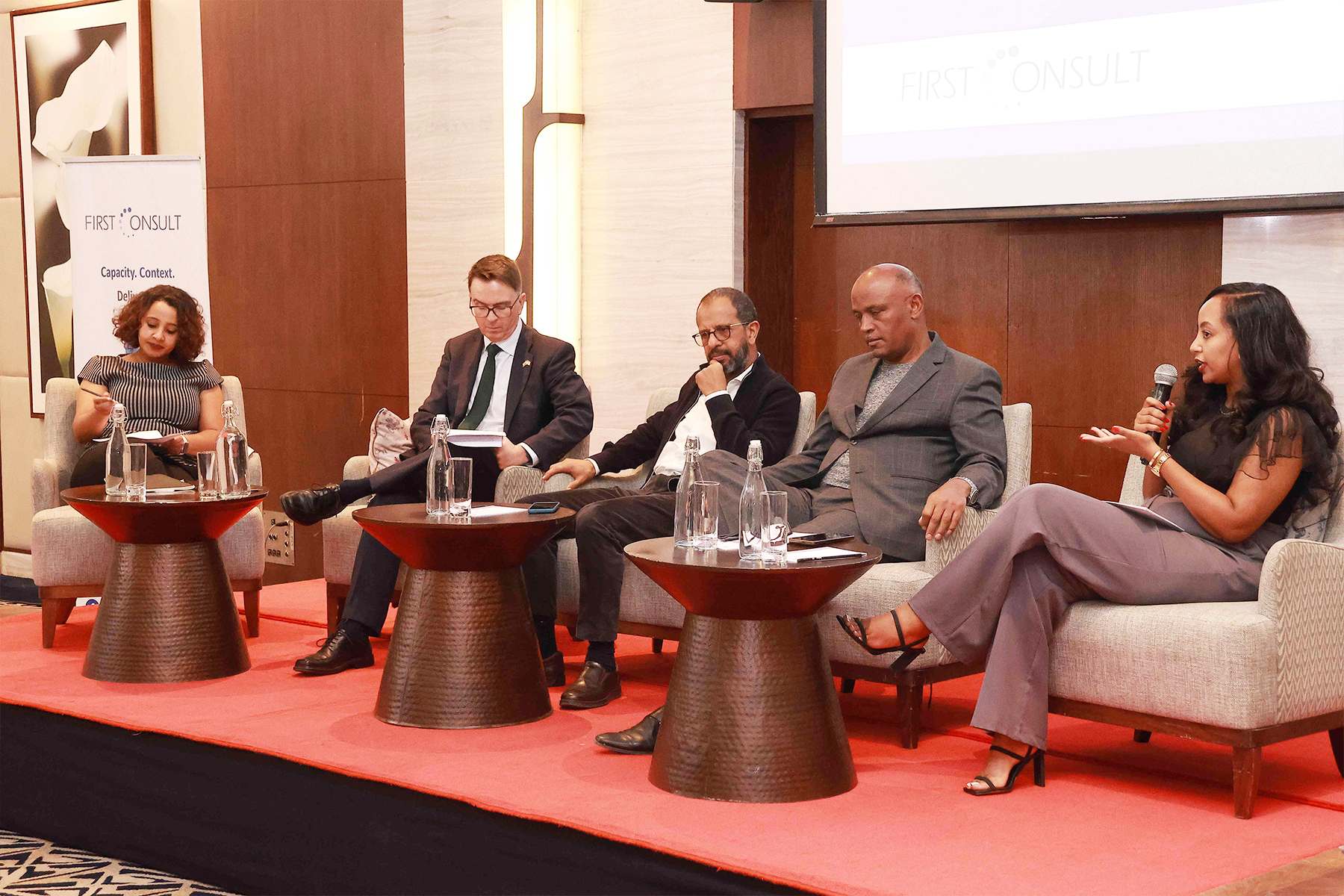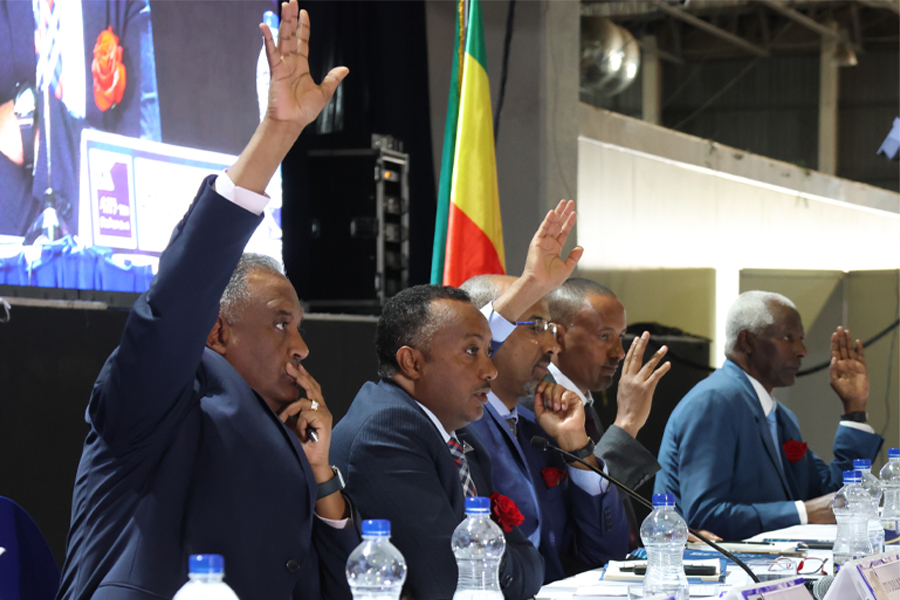
Viewpoints | Aug 03,2019
Mar 2 , 2019
By Eden Sahle
Poverty and inequality are traumas that continue to haunt Ethiopia and are a reflection of the economic and political conundrum the nation is in. Inequality, which has been creeping up over the past decades, reinforces social biases against the poor and destitute, which in turn brings sociopolitical tensions.
Those who have higher economic status and more privileges than others tend to believe they possess the right to discriminate, which is characteristic of the human condition. In this unequal social spectrum, the unfair treatment is not directed against individuals and social groups of certain ethnicities, religions or races, but mostly lower economic statuses.
The Ethiopian state has never quite figured out how to help those in need and address poverty. From a more capitalist dispensation to an outright Marxist-Leninist leaning, government policies have recurrently failed to realise an allocation of resources for the maximum productive use.
To this day, despite the leftist roots of the incumbent coalition, the economic structure of the nation has continued to benefit those that have an early start. The lack of inclusive political and economic institutions has meant low levels of social mobility and creative destruction. This has made a large middle-class, despite its growing numbers, a possibility that is too far away.
The natural tendency of such inequality is social segregation, since the rich network with the rich and the poor with the poor. Without democratic systems that can correct for this imbalance by ensuring that merit and hard work matter to individual’s economic status, the problem will lead to a segment of the population that will be unable to partake in social and civic participation.
I went to private schools where the majority of the students felt empowered compared to their peers who were assumed to be economically underprivileged. Friendships were made based on what students could show off with their parents’ wealth.
It is not a problem only in schools, and such behaviours are not only symptoms of a lack of exposure. It is a problem that gets worse in adulthood, as it can be easily discerned among individuals in their 40s and 50s who are still desperately trying to fit into social groups. Instead of having goals and passions in a career, many spend their valuable time working hard to belong in circles that espouse opulent lifestyles.
Scarcity of resources eats away at the unifying and constructive force that holds society together, especially if the means of getting by are determined by factors such as birth. It is inevitable that there will be rich people in any society where private enterprise is allowed, and individuals will always aspire to have the wealth and privilege others have. Left without a fair system of distribution of resources though, this tendency becomes unhealthy, creating tensions under the different strata of society.
Most people in Ethiopia perceive poverty as an individual phenomenon primarily caused by an individual's laziness. Nonetheless, most of the time, poverty is systematic and arises out of an inefficient state unable to create an environment where merit can be rewarded and basic needs, such as health care and education, can be provided.
Poverty is a symptom of poor leadership, lack of proper planning and mismanagement. Unless these fundamental factors are addressed, the tensions within the various social strata will continue to erupt, masking themselves as ethnic or religious struggles. The struggles we are seeing now, like it has been the case before, is for the domination of the political and economic institutions of the nation, an approach that will worsen the tensions currently evident in the country. This should be improved into a struggle to make institutions inclusive of Ethiopians from every background.
Prime Minister Abiy Ahmed (PhD) has said that it is possible to rise above the conflicts that the country has become prone to as long as economic expansion continues. Indeed, if Ethiopia becomes a state able to address its deeply economic structural flaws, it would be a more stable nation that is at peace with itself.
PUBLISHED ON
Mar 02,2019 [ VOL
19 , NO
983]

Viewpoints | Aug 03,2019

Editorial | Jul 13,2024

Covid-19 | May 09,2020

My Opinion | Jul 17,2022

Fortune News | Apr 06,2024

Commentaries | Mar 02,2019

Radar | Sep 21,2019

Commentaries | Sep 08,2024

Sunday with Eden | Jan 28,2023

Radar | Oct 20,2024

Photo Gallery | 170593 Views | May 06,2019

Photo Gallery | 160828 Views | Apr 26,2019

Photo Gallery | 150474 Views | Oct 06,2021

My Opinion | 136248 Views | Aug 14,2021





Dec 22 , 2024 . By TIZITA SHEWAFERAW
Charged with transforming colossal state-owned enterprises into modern and competitiv...

Aug 18 , 2024 . By AKSAH ITALO
Although predictable Yonas Zerihun's job in the ride-hailing service is not immune to...

Jul 28 , 2024 . By TIZITA SHEWAFERAW
Unhabitual, perhaps too many, Samuel Gebreyohannes, 38, used to occasionally enjoy a couple of beers at breakfast. However, he recently swit...

Jul 13 , 2024 . By AKSAH ITALO
Investors who rely on tractors, trucks, and field vehicles for commuting, transporting commodities, and f...

Oct 4 , 2025
Eyob Tekalegn (PhD) had been in the Governor's chair for only weeks when, on Septembe...

Sep 27 , 2025
Four years into an experiment with “shock therapy” in education, the national moo...

Sep 20 , 2025
Getachew Reda's return to the national stage was always going to stir attention. Once...

Sep 13 , 2025
At its launch in Nairobi two years ago, the Africa Climate Summit was billed as the f...

Oct 5 , 2025 . By NAHOM AYELE
In Meqelle, a name long associated with industrial grit and regional pride is undergo...

Oct 5 , 2025 . By BEZAWIT HULUAGER
The federal government is set to roll out a new "motor vehicle circulation tax" in th...

Oct 5 , 2025 . By NAHOM AYELE
The Bank of Abyssinia is wrestling with the loss of a prime plot of land once leased...

Oct 5 , 2025 . By BEZAWIT HULUAGER
The Customs Commission has introduced new tariffs on a wide range of imported goods i...